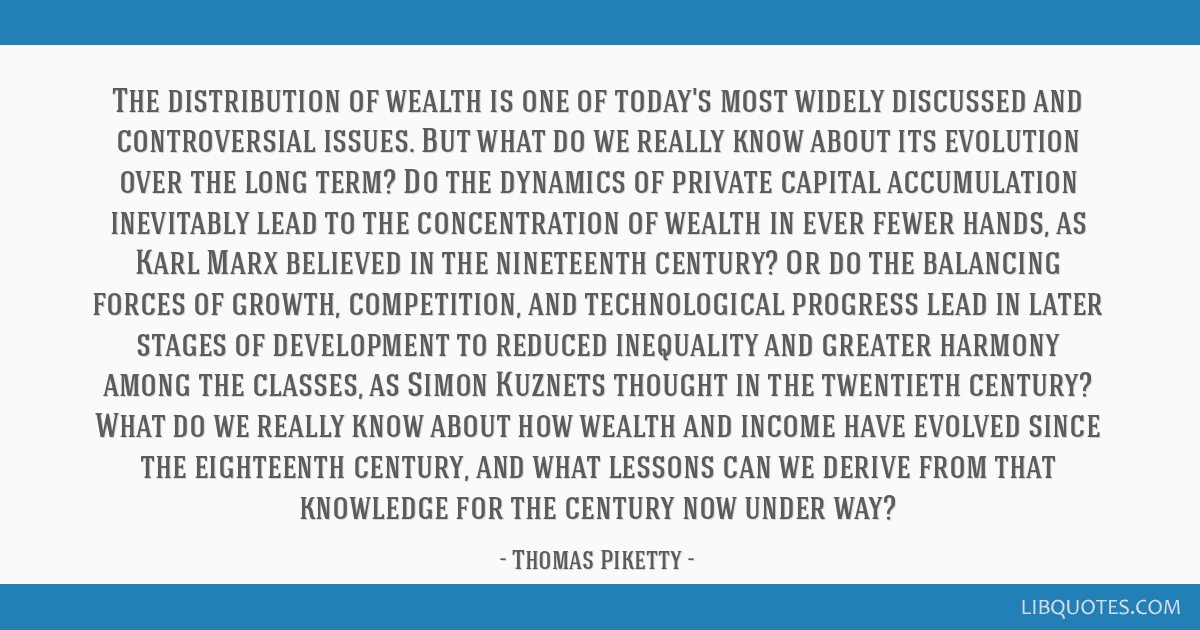The distribution of wealth is one of today's most widely discussed and controversial issues. But what do we really know about its evolution over the long term? Do the dynamics of private capital accumulation inevitably lead to the concentration of wealth in ever fewer hands, as Karl Marx believed in the nineteenth century? Or do the balancing forces of growth, competition, and technological progress lead in later stages of development to reduced inequality and greater harmony among the classes, as Simon Kuznets thought in the twentieth century? What do we really know about how wealth and income have evolved since the eighteenth century, and what lessons can we derive from that knowledge for the century now under way?
p. 1 Introduction: Lead paragraph; Quoted in From the Introduction to Capital in the Twenty-First Century, by Thomas Piketty, at hup.harvard.edu, 2014. - Capital in the Twenty-First Century, (2013)
Capital in the Twenty-First Century: Introduction | Harvard University Press[hup.harvard.edu]























